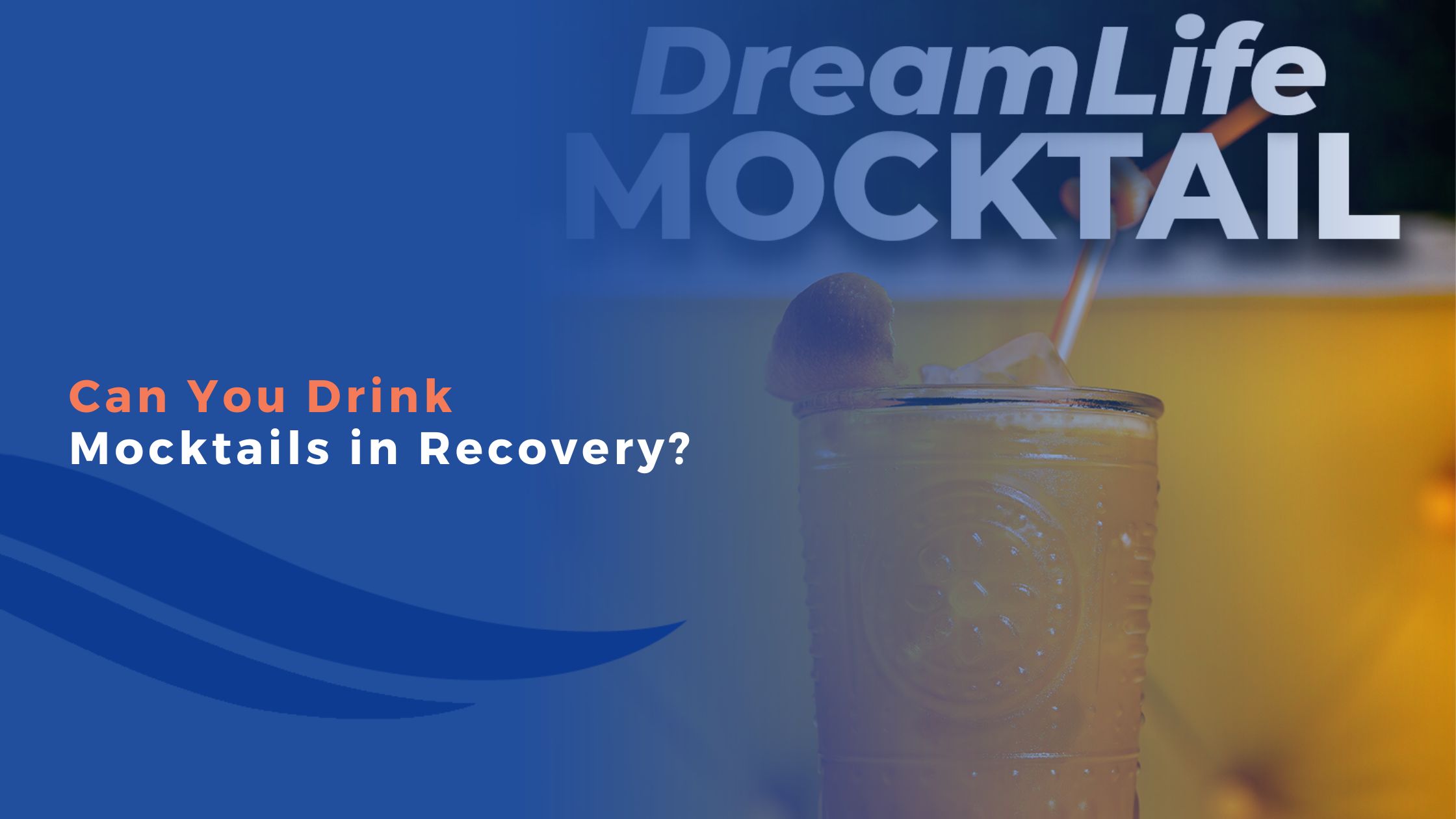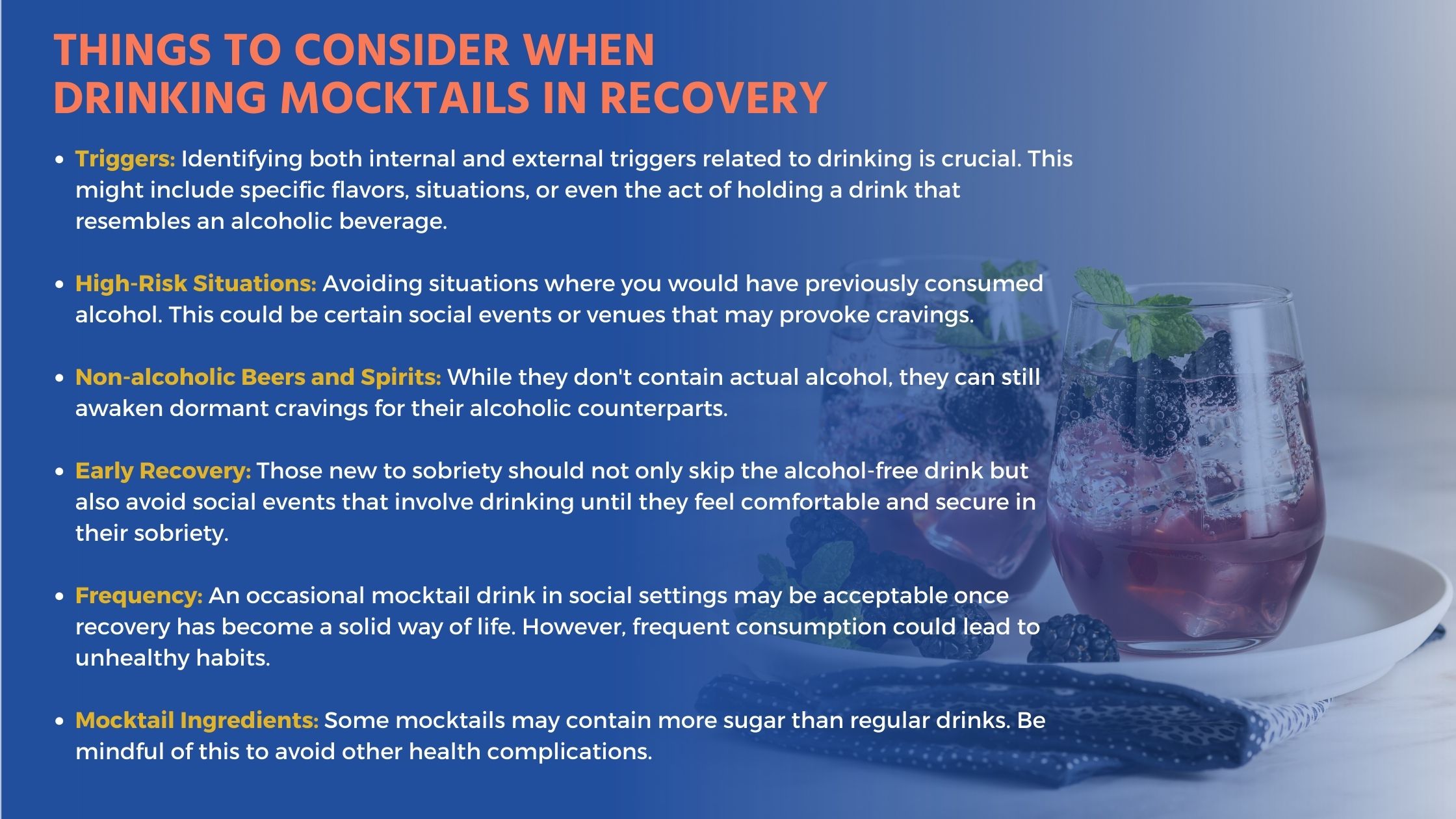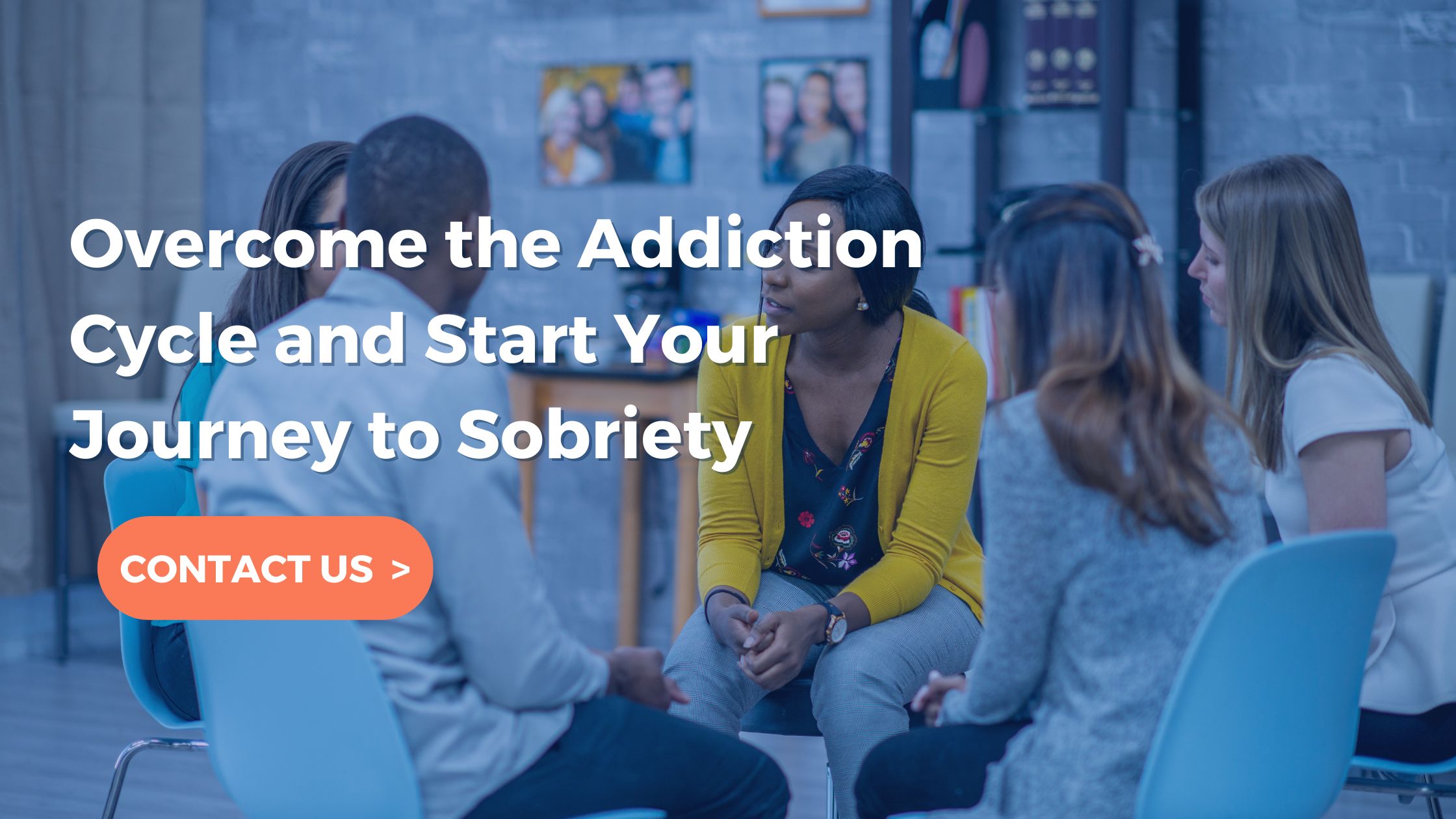Can You Drink Mocktails in Recovery?


Written By
DreamLife RecoveryWhen starting the journey to recovery from alcohol addiction, every aspect of your lifestyle undergoes a transformation. One area that often comes under scrutiny is social drinking. This is where mocktails come into play. But what exactly are mocktails and how do they fit into the recovery narrative?
Mocktails, or mock cocktails, are beverage concoctions that mimic popular alcoholic drinks but without any alcohol. Made with a mix of fruit juices, soda, herbs, and other non-alcoholic ingredients, these beverages provide a fun and flavorful alternative for those abstaining from alcohol.
They are often used in the recovery journey as a way to navigate social settings where drinking is common, without derailing one’s sobriety.
In this blog post, we’ll explore the question – “Can you drink mocktails in recovery?” We’ll dive deep into the pros and cons, and provide insights into making the right choices for your recovery journey.
Mocktails and Their Ingredients
Mocktails, as the name suggests, are “mock cocktails” that are designed to mimic the taste and presentation of traditional alcoholic cocktails without containing any alcohol.
They are crafted with a mix of ingredients that typically include fruit juices, soda water, and ice.
Common ingredients in mocktails can range from fresh fruits like watermelon, mango, and citrus, to refreshing elements like mint and cucumber. They may also include non-alcoholic bases like ginger ale, lemon-lime soda, or lemonade, and specialty syrups such as grenadine.
For an added touch of sophistication, mocktails can be garnished with items like a slice of lemon, a sprig of basil, or even a maraschino cherry.
Mocktails offer a flavorful and fun alternative to alcoholic drinks, making them a popular choice for those who choose not to drink alcohol for health, religious, or personal reasons, including those on a recovery journey from alcohol addiction.
They allow individuals to enjoy the social aspect of ‘having a drink’ without the effects or potential risks associated with alcohol consumption.
The Role of Mocktails in Recovery
In the journey to recovery from alcohol addiction, mocktails play a crucial role. They provide a viable and enjoyable alternative to alcoholic beverages, allowing individuals to participate in social situations without compromising their sobriety.
At social events where alcohol is often present, it can be challenging for those in recovery to navigate the atmosphere without feeling alienated or tempted to consume alcohol.
Here’s where mocktails come into play. With their similar appearance and taste to regular cocktails, they offer a sense of inclusion and normalcy.
Mocktails also aid in reducing the potential triggers associated with drinking. By replacing the alcoholic drink with a non-alcoholic one, individuals can still partake in the ritual of making and enjoying a drink without the risk of relapse.
Moreover, mocktails can serve as a conversation starter, enabling those in recovery to discuss their journey and raise awareness about sobriety in a non-threatening way.
In the grand scheme of recovery, mocktails can contribute to a healthier lifestyle and help maintain long-term sobriety. However, it’s important to remember that they are just one tool in a much larger toolbox for managing recovery.
Psychological Perspective of Drinking Mocktails
From a psychological standpoint, drinking mocktails during recovery can have both positive and negative impacts. On one hand, mocktails can help individuals feel included in social situations that often revolve around drinking, preserving a sense of normalcy.
They can also contribute to an elevated mood without interfering with sleep or overall health, as they don’t contain alcohol.
However, the flip side presents potential pitfalls. Some studies suggest that the cues created by mocktails might trigger a relapse into excessive drinking. This is because mocktails often mimic the taste and appearance of alcoholic beverages, which can evoke psychological associations and memories related to alcohol consumption.
There’s also the concern of “zero-proof” alcohols used in some mocktails. While they don’t contain actual alcohol, they could potentially awaken dormant cravings for their alcoholic counterparts.
Furthermore, individuals may end up consuming more sugar if they drink extra mocktails, as these beverages often contain sweeteners. This could lead to other health complications.
Ultimately, the decision to drink mocktails during recovery should be made carefully, considering personal triggers and responses. It’s crucial to avoid high-risk situations and be mindful of any internal psychological triggers when consuming any beverage.
Things to Consider When Drinking Mocktails in Recovery
When incorporating mocktails into a recovery journey, it’s important to consider several factors to avoid potential pitfalls:


- Triggers: Identifying both internal and external triggers related to drinking is crucial. This might include specific flavors, situations, or even the act of holding a drink that resembles an alcoholic beverage.
- High-Risk Situations: Avoiding situations where you would have previously consumed alcohol. This could be certain social events or venues that may provoke cravings.
- Non-alcoholic Beers and Spirits: While they don’t contain actual alcohol, they can still awaken dormant cravings for their alcoholic counterparts.
- Early Recovery: Those new to sobriety should not only skip the alcohol-free drink but also avoid social events that involve drinking until they feel comfortable and secure in their sobriety.
- Frequency: An occasional mocktail drink in social settings may be acceptable once recovery has become a solid way of life. However, frequent consumption could lead to unhealthy habits.
- Mocktail Ingredients: Some mocktails may contain more sugar than regular drinks. Be mindful of this to avoid other health complications.
Remember, every individual’s recovery journey is unique, and what works for one person may not work for another. It’s always best to consult with a healthcare professional or support group before incorporating mocktails into your recovery plan.
DreamLife’s Commitment to Recovery
The journey of recovery is a personal and ongoing process, and the choices we make along the way can significantly impact our well-being.
At DreamLife Recovery, we understand the challenges that come with overcoming addiction, and our commitment extends beyond the confines of traditional rehabilitation.
In a delightful collaboration with the renowned Richard DeShantz Restaurant Group, DreamLife Recovery proudly introduced a limited time “DreamLife Mocktail.”
We did not intend this refreshing alcohol-free concoction as a beverage specifically tailored for those in recovery; rather, we created it as a vibrant and enjoyable alcohol-free option for anyone seeking an alternative to traditional cocktails.
It’s essential to note that our aim was to raise awareness and provide a unique experience without triggering those on the path to recovery. We believed in fostering a supportive and inclusive environment for all, where choices aligned with individual wellness goals.
Alcohol Addiction Recovery at DreamLife in PA
DreamLife Recovery in Pennsylvania is committed to supporting you every step of the way on your unique journey to recovery. If you or a loved one is seeking guidance and a path towards lasting sobriety, don’t hesitate to take the first step.
Reach out to DreamLife Recovery today by calling our dedicated helpline at (855) 384-5808 or filling out this contact form. Our compassionate team of professionals is here to listen, provide assistance, and guide you towards a brighter, healthier future.







